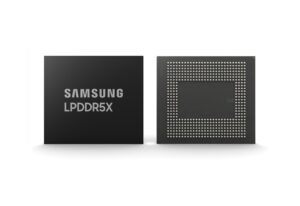AI Research Lab Imbue Nabs $200 Million For Bet To Build AI ‘Agents’

[ad_1]
The startup, one of very few woman-led AI unicorns, has a $1 billion valuation and access to 10,000 Nvidia H100 GPUs, but its founders say it could be years away from revealing a product.
by Alex Konrad, Forbes Staff and Kenrick Cai, Forbes Staff
It was at a San Francisco party hosted by Greg Brockman nearly a decade ago — around the time the Stripe CTO would leave to co-found an AI research lab called OpenAI — that entrepreneurs Kanjun Qiu and Josh Albrecht met a crypto mogul named Jed McCaleb.
As Qiu and Albrecht launched two now-defunct startups, and McCaleb became a regular at The Archive, their group house for founders and AI researchers near Dolores Park, they talked periodically about launching their own AI lab. Several of their housemates had joined Brockman and Sam Altman’s OpenAI project. Still, it felt too early, “a little too crazy,” to just walk away from what they’d built, Qiu said. But when their second startup, Sourceress, stopped growing fast enough, they reconsidered. And when the duo raised $20 million for a new AI research company, Generally Intelligent, last year, McCaleb wrote the biggest check.
Now, Qiu and Albrecht are doubling down on their lab under a new name, Imbue — and this time, McCaleb, a billionaire after cofounding crypto startup Ripple, is writing an even bigger check. Imbue has announced that the Astera Institute, his nonprofit dedicated to backing science and tech projects, is leading a $200 million Series B funding round in the startup. The all-cash round, which includes AI chipmaking heavyweight Nvidia, Cruise cofounder Kyle Vogt and Notion cofounder Simon Last, values Imbue at more than $1 billion, making the company one of the only woman-led AI research unicorns.
While OpenAI and rivals from Anthropic to Google battle to build massive AI foundation models like GPT-4, Qiu and Albrecht are charting a different course. Imbue’s focus is an AI “agent”: a type of computing system that can simulate human decision-making to complete complex tasks. Chatbots like ChatGPT receive a user’s query and generate a near-instant response. Imbue’s agents would act more like a virtual research assistant that can crunch analysis, recommend follow-on experiments and even set them up, all unsupervised.
Such self-sufficiency could be helpful in a wide range of situations, from biology research to travel planning and complex coding projects, according to Albrecht. Agents “go off on their own and do stuff,” Qiu explained.
“We believe AI has the potential to thin the barrier between ideas and execution.”
Imbue cofounder Kanjun Qiu
To build such agents, Imbue has amassed access to 10,000 of Nvidia’s H100 GPUs —about the same number of processors that OpenAI used to train GPT-3. It released an open-source training environment for teaching such tools, called Avalon, last fall; more prototypes and releases are coming, its founders said, in the months ahead.
Imbue is also breathtakingly early in its journey to be joining the billion-dollar-startup ranks. The startup employs only about 20 people. No demo of their agents is ready for public consumption yet, its founders said. And its lead backer, McCaleb’s Astera, is an unusual source compared to the name-brand venture capital firms and Big Tech cloud providers that have swarmed other recent AI projects — in part, Qiu and Albrecht claim, because a non-profit can be more patient with their commercialization timeline. (McCaleb tells Forbes that he is still looking for “venture-style” financial returns in the long run.)
In the frothy AI market, a startup raising hundreds of millions without any revenue isn’t unheard-of. But it’s a stakes-raising bet that puts much more scrutiny on what Imbue does next. For Qiu, that goal is a lofty one: build for AI agents what the Xerox PARC lab was for the personal computer half a century ago.
Back then, computers were expensive and byzantine to use, but PARC researchers had developed tools that made them accessible to non-technical people and those tools ultimately put PCs in our homes. Imbue wants to do the same for generative AI. “We believe AI has the potential to thin the barrier between ideas and execution,” Qiu said. “A truly personal computer that does things for you, and frees people up.”
Imbue’s founders first met at a conference at UC Berkeley in 2014. Qiu worked at Dropbox, where she started in business operations before becoming the first chief of staff to CEO Drew Houston. Albrecht had been a cofounder and chief technology officer at several startups before joining the data team at wealth manager Addepar. Both had studied machine learning in college, Albrecht co-publishing papers at the University of Pittsburgh, Qiu working on probability theory while building and running high-frequency trade algorithms to help pay her way through MIT.
They bonded over high-brow topics such as the future of humans’ decision-making powers in an AI-dominated world. Soon, Albrecht convinced Qiu to team up on Ember Hardware, his startup project building virtual reality hardware, but the company never got off the ground. After setting up The Archive house, which would become home to many early OpenAI researchers, the pair decided to use machine learning to solve a problem they’d experienced at now-defunct Ember: inspiring talented people who aren’t looking for a job to apply for one anyway. Called Sourceress, their startup went through startup accelerator Y Combinator in 2017; Houston and his Dropbox cofounder Arash Ferdowsi invested as Sourceress raised a $3.5 million seed round upon completing the program.
“Every decade or so there’s a new era of computing that kicks off, and everybody’s fumbling around together.”
Dropbox cofounder and CEO Drew Houston
The company did decent business for a time, reaching millions in sales, before growth slowed. When several attempts to jumpstart momentum failed, the founders and Threshold investor Josh Stein had a “mature conversation” about pivoting to another, potentially bigger idea. “There was nothing wrong with Sourceress per se, but it was clear it wasn’t going to be a breakout success,” said Stein.
In late 2020, Qiu and Albrecht shut down Sourceress, returning about $4 million to investors and invited those that were interested to roll over some of their investment into equity stakes in the duo’s new startup, Generally Intelligent. On paper, those stakes appear lucrative given Imbue’s latest valuation: “It looks like it’s going to be a very successful investment for us,” Stein said.
It’s a pleasant August evening in San Francisco as Houston takes the mic to talk about all things AI with Qiu and Ali Rohde, who manages a small venture fund Imbue’s founders established to back other early-stage AI startups. Several dozen attendees, mostly entrepreneurs and engineers, flock to productivity software company Notion’s minimalistic Mission District office to hear Houston speak.
The gathering, one of a weekly series, is reminiscent of The Archive’s old dinners, but at a larger scale. “Every decade or so there’s a new era of computing that kicks off, and everybody’s fumbling around together,” Houston said later. “To be in that community, it’s exciting.”
Houston didn’t expect his former employee to pivot from recruiting automation to AI research lab; now, given the recent excitement around generative AI, he said the move has gone from looking like “science project” to “right in the fairway.” He’s joined by a who’s who of backers in that fund, Outset Capital, including Quora CEO and OpenAI board member Adam D’Angelo, Hollywood mogul Jeffrey Katzenberg and Google DeepMind head of policy (and former Dropbox PR chief) Dorothy Chou.
“We could either keep researching along, while all these other labs were making a lot of progress, or we could make a bet here, and go for it.”
Imbue investor Jed McCaleb
Despite their deep Silicon Valley connections, several prolific investors in the category – all of whom asked to remain anonymous to speak freely – said they doubted the team’s credentials to operate a serious AI research lab. Others disagree. One, who knows Imbue’s founders, discounted such concerns as VC bias to collect “baseball cards,” or only back founders from the same several prestigious backgrounds. Still, they wondered whether Imbue’s ambition to release agents as commercial projects would differentiate it from other well-resourced labs over the long run.
Qiu and Albrecht are unperturbed by any concerns about their team’s research chops. They pointed to a handful of employees with academic backgrounds in AI research, as well as neuroscience and plasma physics, arguing their breadth is a strength.
Imbue’s lack of traditional investors on its cap table (Stein’s Threshold is the only one) has also raised questions. The founders say they deliberately didn’t take any formal meetings with venture capital firms for Imbue’s recent fund raises, in large part because they acknowledge their work could take years to develop proven commercial projects. “I think it’s actually beneficial to be a little bit of an outsider, to take a fresh look,” their investor, McCaleb, agreed.
As for Imbue’s eye-popping valuation for such a fledgling project, McCaleb said he was satisfied with the scope of the opportunity after seeing a demo that showed how Qiu and Albrecht might eventually build agents; it went against “99% of the [research] efforts” he was seeing at other AI labs. (Qiu and Albrecht said they could not share that demo publicly yet).
“In order to actually push this research to the next level and see if we can build it and then later productize it, you need a bunch of money, because you need GPUs, right?” McCaleb said. “We could either keep researching along, while all these other labs were making a lot of progress, or we could make a bet here, and go for it. So, it just seemed like the time to do that.”
Imbue may well have its own public-facing “aha” moment someday, as OpenAI did with the popular launch of ChatGPT. These things take time. Qiu and Albrecht pointed to Cruise, the self-driving car business whose cofounder is now an investor, and how early excitement about demos are only leading to more mainstream adoption now, a decade later. Mainstreaming agents like Imbue likely won’t take a decade, Albrecht claimed; but it won’t take a matter of months, either.
“We will be actively exploring,” Albrecht said. “We want to wait until we are ready and think, this is really good, we trust it and it’s robust, safe and great, before we put it out there.”
MORE FROM FORBES
[ad_2]
Source link









